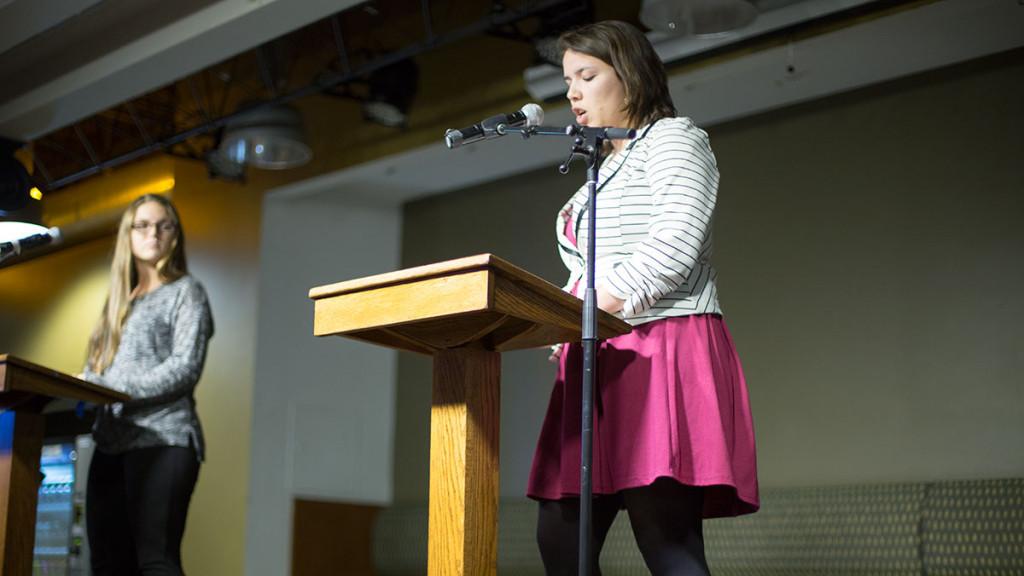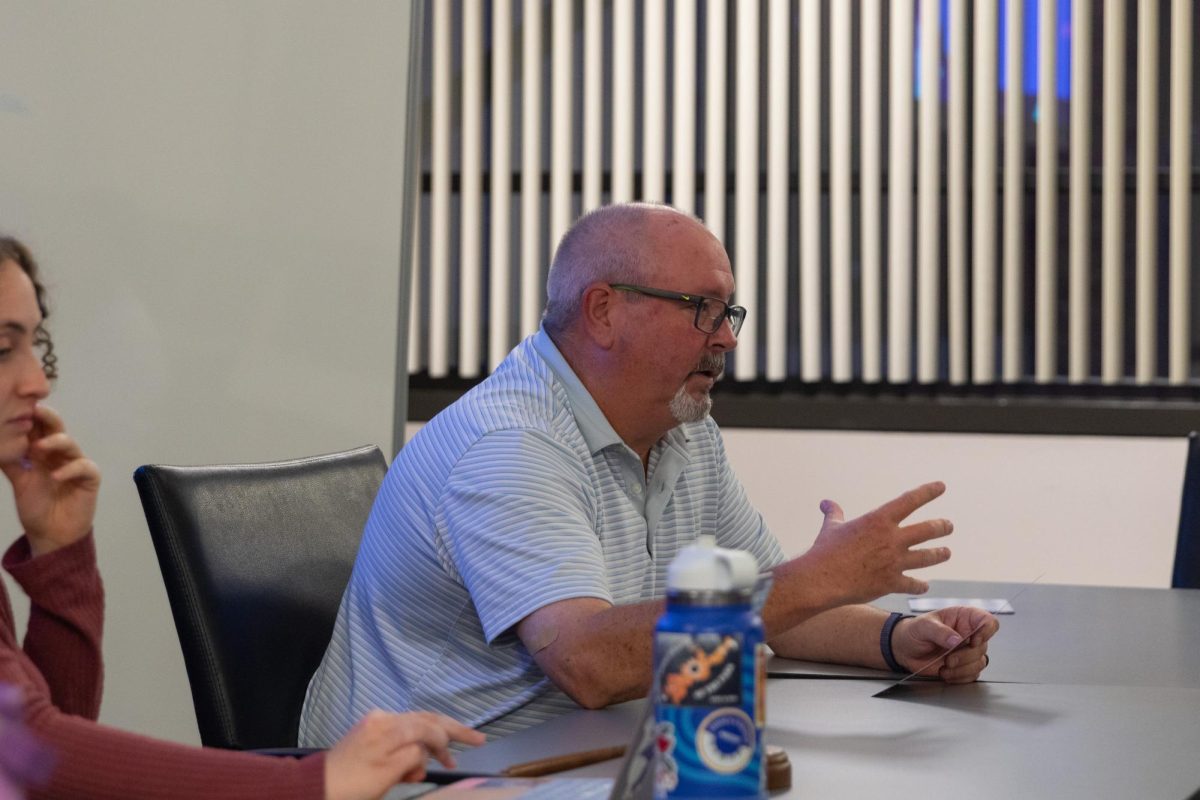This year’s potential Student Government Association senators presented a common theme of improving campus communication among student and faculty demographics in their platform presentations at 7 p.m. Sept. 22 in IC Square.
At the event, each of the nine candidates spoke to an audience of about 30 people, giving a short speech about his or her plans for Ithaca College campus affairs. After each platform presentation, questions were taken from the audience.
The students spoke about their platforms for six different positions, including Class of 2018 Senator, Class of 2016 Senator, Business School Senator, Humanities and Sciences School Senator, Music School Senator and Senator-at-Large. Many referenced similar issues, such as the printing management system, Grab ’n’ Go and the quality of dining hall food, and several of the questions asked by the audience regarded the SGA’s ongoing microaggression project.
Voting will open for the positions’ respective constituencies on OrgSync at 12:01 a.m. Sept. 24 and continue until 11:59 p.m. Sept. 25. The SGA will release the results via the SGA Facebook page at noon Sept. 26.
Freshman Marieme Foote, candidate for Class of 2018 Senator, advocated for the improvement of wireless accessibility across campus by urging the administration to maintain communication with different Internet providers and said campus websites such as Sakai should be reformed to be more user-friendly.
“The decentralized nature of the programs that the school uses, like OrgSync and Homerconnect, confuses students and floods them with excess information,” Foote said. “Increasing Internet accessibility will help to increase campus-wide productivity and give students better access to what they need to know.”
When asked about the college’s environmental policy, freshman Angela Pradhan, the other candidate for Class of 2018 Senator, said the college should integrate the use of biodegradable paper as well as spread knowledge about environmental issues.
“It would be useful if we had more literacy about composting,” Pradhan said. “I think we do a pretty good job as a community and as college students with the environment, but we can always do more.”
Another popular platform concern was the issue of bringing the different schools within the college together. Junior Jacob Greenberg, the single candidate for Class of 2016 Senator, brought attention to the Intellectual Bazaar, a suggestion made by President Tom Rochon. The bazaar would be a place where students from different departments can come together to discuss what they want to be doing in college, which Greenberg said could be helpful in connecting the five schools on campus.
“College is a place for different people to come together and form new ideologies,” Greenberg said. “The reason that we haven’t been able to voice our opinions to the administration is because there is a lack of unity on campus.”
Several candidates brought up the importance of face-to-face interaction when it comes to spreading information and creating change on campus. When Senator-at-Large Jamila Carter asked sophomore Zamar Malik, the candidate for Business School Senator, about his game plan, he said he wants to increase awareness about the opportunities the School of Business offers by holding meetings and in-class presentations.
“In my experience, I have noticed that billboards and posters don’t really work,” Malik said. “We need to bring it to a person-to-person level because direct communication is effective.”
Two of the three candidates for Senator-at-Large, freshman Menalie Hyde and sophomore Madeline Haftel, also said direct communication would be more effective in getting information out to a wide range of people about common issues, such as Grab ’n’ Go and printing.
“We can’t rely on social media anymore,” Haftel said. “We need to communicate with people on a face-to-face basis.”
The third candidate for this position, senior Meredith Knowles, disagreed and said creativity with social media and emails are the best ways to reach out to students across campus.
“Face-to-face talking isn’t realistic,” Knowles said. “We have to hit on the issues that students really care about. We need to find those passions and appeal to them in a creative way.”
Microaggression issues came up in many of the questions asked by the audience. The candidate for Humanities and Sciences School Senator, senior Dylan Thomasset, said microaggressions are important to monitor in a school as diverse as H&S.
“In H&S, we have a large group of people who are new or don’t know their way yet,” Thomasset said. “We need to make people more involved in a community that has its conflicts but also its resolutions.”
Senior Namarah McCall, the candidate for the School of Music Senator, also said microaggressions are important to recognize and said the college should address the issue head-on. In her platform, she said her mission includes making the Music School more approachable for other departments on campus.
“We are all students, and we are all studying something we are passionate about,” McCall said. “We need to start sharing what we care about.”
SGA president Crystal Kayiza said she was excited to see the candidates’ different perspectives of the same issues.
“I think everyone is focusing on good concerns,” Kayiza said. “It looks like we are on the right path for where we want to go this year.”








